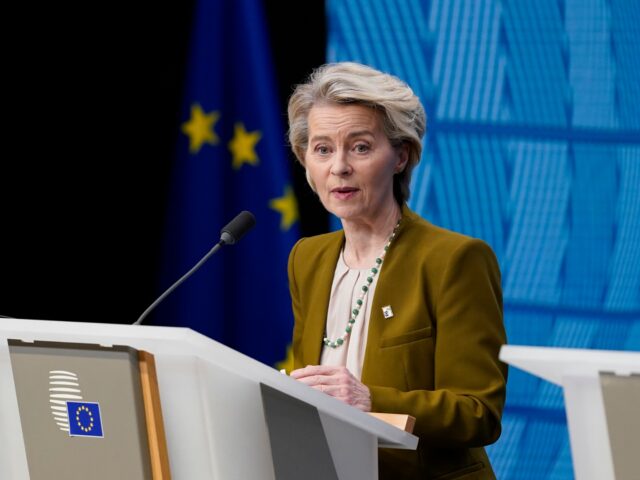EU Chief Von Der Leyen Seeks to Ban Repairs on Sabotaged Nord Stream Pipelines: Report

European Commission President Ursula von der Leyen is reportedly seeking to impose sanctions to prevent the repair of the Nord Stream pipelines and to prevent the link between Russia and Germany from being restored should a Ukraine peace deal be brokered, sparking a backlash from populists within the top EU economy.
According to a report from Berliner Zeitung, the German politician — who fell upwards into the European Commission role — is advocating for sanctions to be implemented to prevent Nord Stream 1 and 2 from being repaired, after they were damaged in suspected sabotage in 2022.
The paper noted that current sanctions on the pipelines, under the Biden-era American Protecting European Energy Security Act (PEESA), only prohibit the “construction” of elements of Nord Stream 2. They were imposed prior to the sabotage after the Democratic administration u-turned on sanctions in a last-minute effort to shut down the completion of the second pipeline.
However, proponents of opening back up the gas transport system between Russia and Germany have noted that the sanctions do not specifically rule out “reconstruction” efforts and fail to mention Nord Stream 1 in any regard, potentially leaving the door open to repair efforts on both pipelines.
Recent studies from the University of Greifswald have found that the Nord Stream 2 pipeline, which suffered less damage during the suspected bombing than its older counterpart, could be put back online relatively easily, as the damaged section could be fully demolished and replaced.
Energy expert at the university, Michael Rodi said that this would only cost around a half billion euros to do so, which he noted pales in comparison to the near ten billion euro investment already made into the project. “From a technical point of view, this isn’t a big problem,” he said.
While the recently installed government of Chancellor Friedrich Merz has remained relatively quiet on the issue, the second largest party and the official opposition, the Alternative for Germany called on Monday for the government to block any sanctions that would prevent the repair of the pipelines.
In a statement, the party accused EU chief von der Leyen of plotting an “unprecedented economic policy attack on Germany”. The AfD argued that the destruction of the pipelines has not prevented Russian gas from reaching Germany, but rather has only forced the flows to be diverted through more expensive means, namely being transported by ship.
According to the Ember Energy think tank, Russian gas imports increased by 18 per cent last year, while EU prices rose by 59 per cent during the same time frame. This, the think tank noted, was in stark contrast to von der Leyen’s stated goal to sever Russian-EU energy ties by 2027.
The AfD argued, therefore, that the EU chief is seeking to prevent the re-connection of Nord Stream “out of principle, not reason”.
“The AfD stands for a realistic foreign and energy policy. We are committed to a rapid restart of Nord Stream to boost Germany’s economic reconstruction with affordable gas. No more symbolic politics at the expense of the people! Only an AfD-led government will end this course and consistently represent German interests,” the party said.
This may put the populist party at odds with the Trump administration; however, given President Trump’s longstanding opposition to Germany’s overreliance on Russian energy, he previously warned in 2018 that Berlin would become “captive” to Vladimir Putin over his penchant for using energy supply to exert political influence.
Yet, there have been efforts from U.S. investor banker Stephen Lynch to purchase the Nord Stream 2 pipeline, potentially opening an avenue for Washington to ease sanctions in a potential Ukraine peace agreement while still maintaining a level of control over the energy infrastructure.